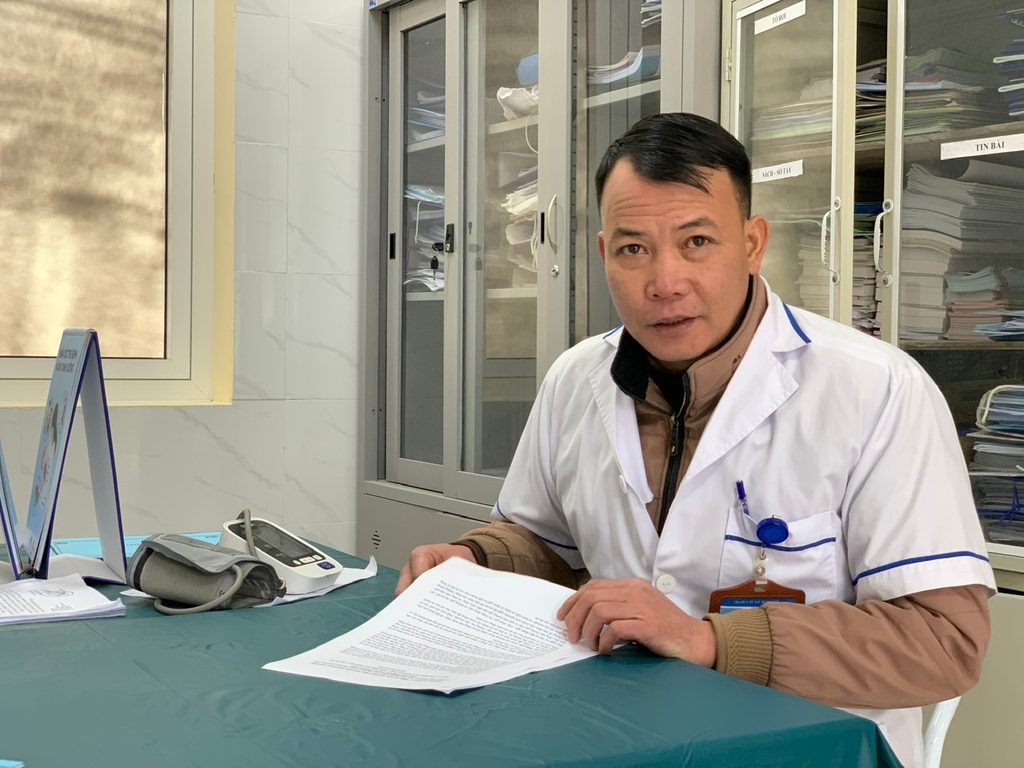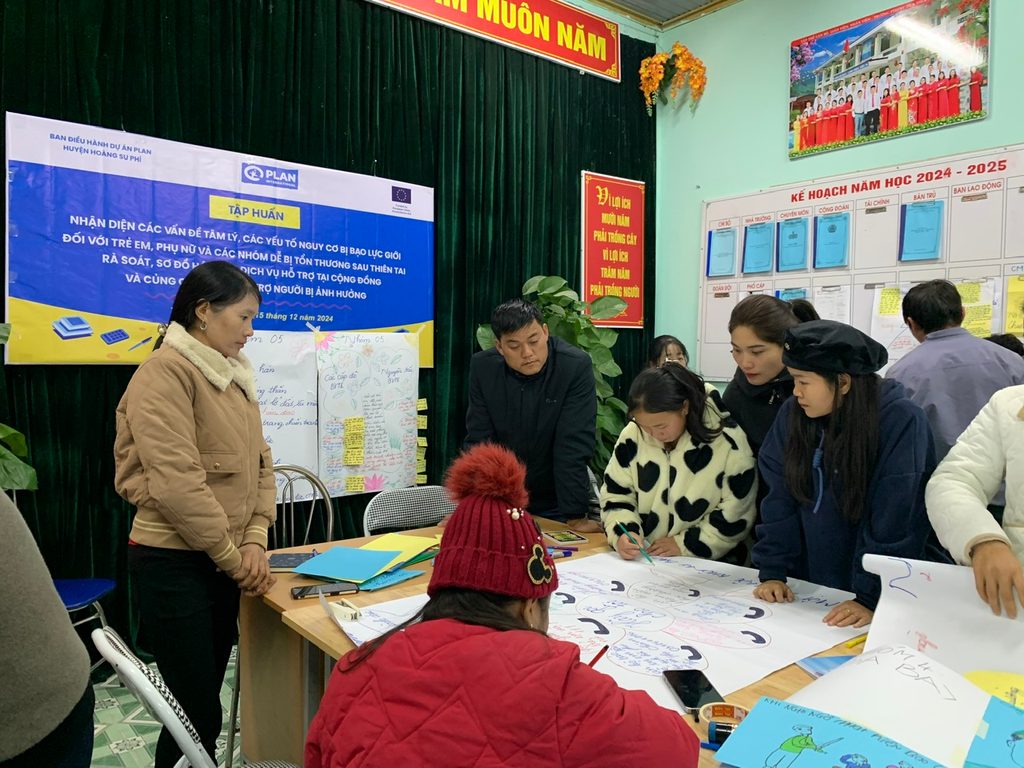From Awareness to Action
Dĩn, 45 years old health officer in Hà Giang province, joined training sessions on Protecting children from violence, abuse, and exploitation to support the disaster relief after Typhoon Yagi.

Dìn, 45, is a health officer in Túng Sán commune, Hà Giang province. He has been working in community healthcare for years, but before this, he had never attended specialised training on protecting children from violence, abuse, and exploitation.
Prevention of Sexual Exploitation, Abuse, and Harassment training
After Typhoon Yagi, Plan International Vietnam began supporting Túng Sán commune through the project “Humanitarian Assistance Response to Tropical Cyclone Yagi The Aftermath in Vietnam and Laos (HARYAV)” with funding from the European Civil Protection and Humanitarian Aid Operations. As part of this initiative, Dìn had the opportunity to participate in PSHEA (Prevention of Sexual Exploitation, Abuse, and Harassment) and child protection training sessions.
“After the training, I understood the reporting mechanisms for cases of child abuse much better. Before, I only thought about reporting to the police or local authorities, but now I know there are many different channels to intervene in time.”

“I was really impressed by the way the training was conducted—it wasn’t just theory; it included interactive guidance like drawings and hand gestures to make things easier to understand,” Dìn shared. He could now better recognise signs of child abuse and understand how to respond and report cases appropriately.
More importantly, he didn’t stop at just learning—he immediately put his new knowledge into practice. “Before, when I saw a child with injuries that seemed to be caused by violence, my first instinct was to report it to the police. But now, I know there are multiple channels, like the Women’s Union, the People’s Committee, and teachers, who can intervene quickly and provide the best support for the child.”
Dìn also started working more closely with teachers to monitor students’ health, paying special attention to those showing signs of distress or trauma after the typhoon. He actively promoted child safety awareness, emphasising not just securing food and shelter but also providing psychological support. “After a disaster, children don’t just need food; they also need emotional support to overcome trauma.”
Sharing this perspective, Ms. Nga, Deputy Principal of Túng Sán Primary and Secondary School, emphasised: “These training sessions have transformed the way local officials, teachers, and even parents think about child protection. In the past, most parents only focused on securing their homes and belongings when storms hit. But now, they understand that protecting their children isn’t just about physical safety—it’s about emotional well-being, too. Parents now know how to reassure their children when they feel scared or anxious after a disaster, and they’re more proactive in reaching out to teachers and local officials for support when needed.”
The most important realisation Dìn took away from the training was that protecting children is not just the responsibility of individual families—it is a shared duty of the entire community. “After a disaster, children don’t just need food; they need psychological support to overcome trauma.”
“After a disaster, children don’t just need food; they need psychological support to overcome trauma.”
Dìn
Since attending the training, Dìn has not only changed his perspective but has also become more proactive in supporting children affected by violence or natural disasters. “If everyone is aware and knows how to step in at the right time, children will be much safer,” he affirmed.
About the project
From October 2024, European Civil Protection and Humanitarian Aid Operations and the Consortium consisting of World Vision, CARE, and Plan International join hands to carry out humanitarian assistance response to typhoon YAGI with the project “Supporting Humanitarian Response and Early Recovery in the Aftermath of Typhoon Yagi in Viet Nam”. Together, the consortium aims to improve access to safe water, sanitation, and hygiene (WASH), enhance safe and inclusive learning for children to return to school, support vulnerable households in meeting daily subsistence and immediate needs through multi-purpose cash transfers. Besides that, the project also provides support services to children and women affected by abuse and violence; also reduces post-disaster child abuse and violence and gender-based violence risks for women, girls, and other vulnerable groups and connects them to referral pathways in schools and communities.
Categories: Emergencies, Protection from violence


